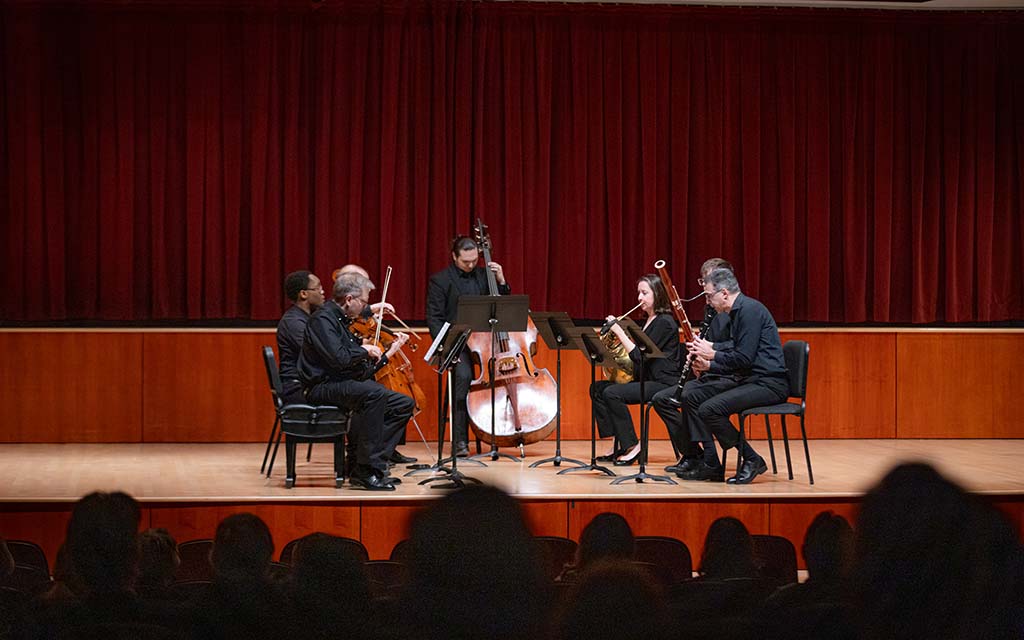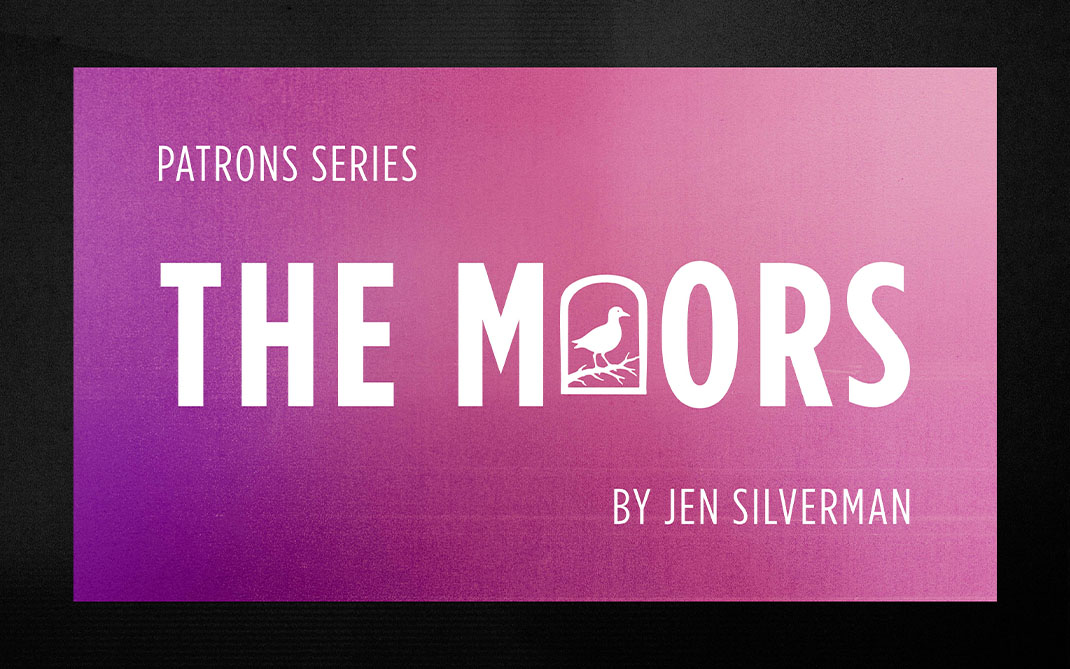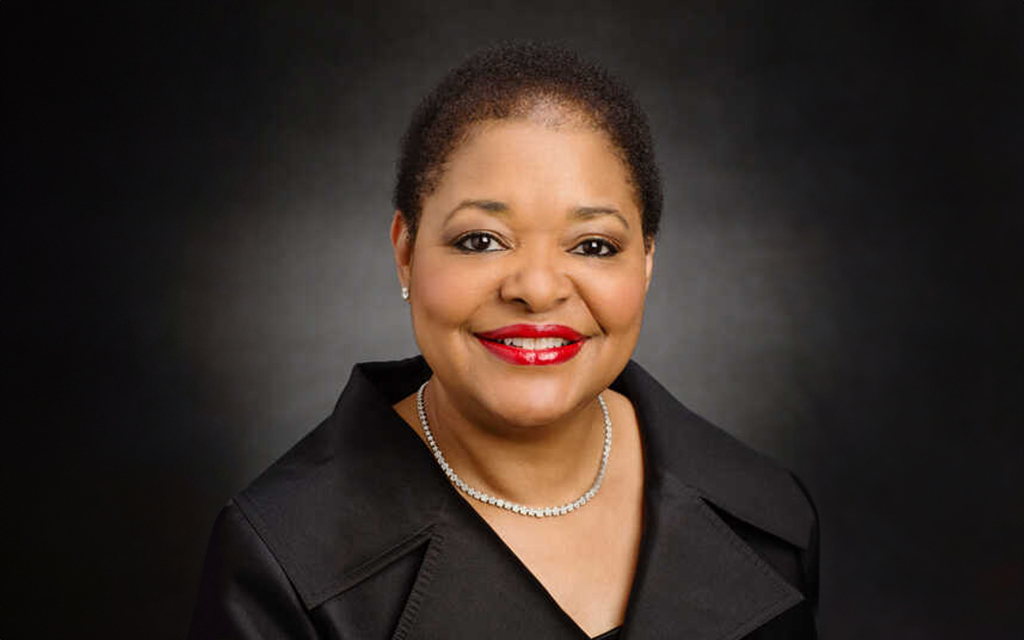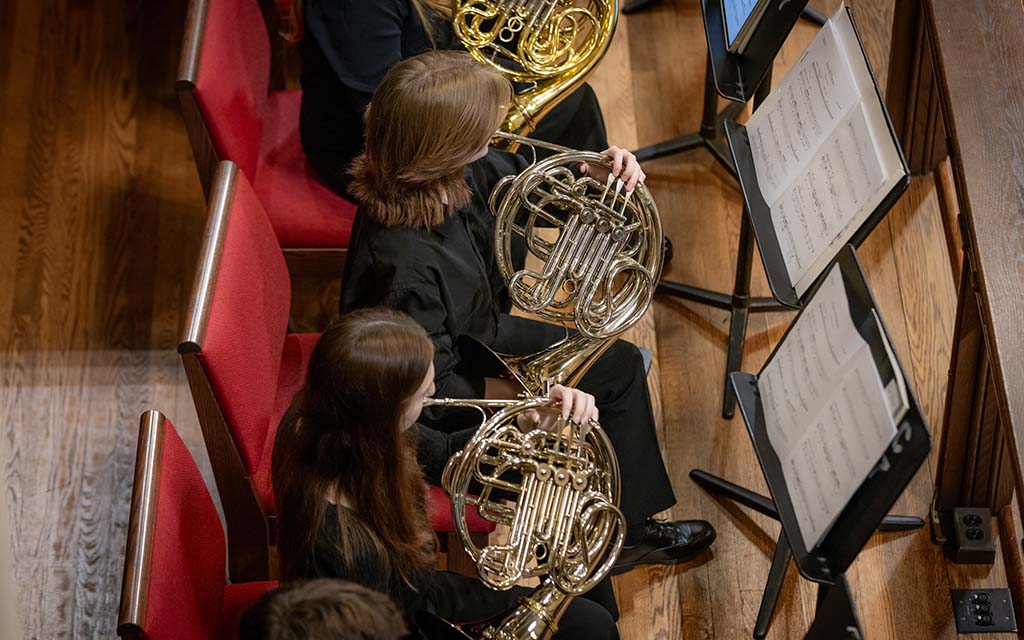UNCSA faculty, staff set artists up for financial success
Each year, emerging artists in the five conservatories of UNCSA spend countless hours in studios, shops and practice rooms preparing for their careers. But that is only part of their journey.
Faculty in each conservatory advise students about career preparedness, and the Division of Liberal Arts (DLA) and the Office of Career Readiness help pave the way to fulfilling careers with courses, workshops and programs that include financial literacy, negotiation skills and communication with prospective employers.
Dean of Liberal Arts Rachel Williams says business courses are essential for artists because their career paths might not be straightforward. “In our changing economy, it is important to plan ahead and work toward financial stability,” she says. “Many of our students go on to become very successful arts entrepreneurs or work in the nonprofit sector. Learning how the business side of the arts work is crucial to their success.”
DLA offers arts management classes and an arts entrepreneurship minor to develop essential business skills and to present various approaches to the business side of the arts. “Arts entrepreneurship professors have MBAs or Ph.Ds and have had successful careers as artists, business professionals or entrepreneurs,” Williams says.
On this page
The money taboo: Facing finances without fear
Katie Wolf teaches personal finance for artists, a course offered in the arts management section of classes and a requirement of the arts entrepreneurship minor. Wolf is a collage artist with a bachelor’s degree in studio art from Wake Forest University and an MBA with a focus on nonprofit management from the University of North Carolina Greensboro.
She says financial literacy is especially important for artists because stability helps foster creativity. “If you know the bills will be paid, you feel safe and you will take more risks creatively,” she explains. “Artists are more likely to deal with inconsistent income. They might travel more for work and have to deal with transportation and housing issues for short-term gigs. They are not likely to receive benefits like health insurance and retirement plans,” she adds.
If you know the bills will be paid, you feel safe and you will take more risks creatively.
Katie Wolf, Division of Liberal Arts faculty
Artists also incur costs associated with their craft: dance shoes, travel to auditions, insurance for musical instruments, specialized equipment and expensive apps for filmmaking and design, power tools for building sets and props. And artists should considerwhere they will end up after graduation. “Financial life looks much different in New York City than on a farm in Wyoming,” Wolf says.
Wolf —who has worked in various capacities for many of the area’s most notable visual arts organizations (Reynolda House Museum of American Art, Southeastern Center for Contemporary Art, Hanes Gallery at Wake Forest University and Greenhill Center for North Carolina Art) — seeks to encourage confidence so that emerging artists can approach their finances without fear.
“When I graduated from high school, I became aware of the larger concept of money and financial systems,” she says. “I found it fascinating – what is this thing and why does it have so much power?” she recalls wondering. “I was aware of the stereotype of the starving artist, and I knew I was unlikely to make tons of money, but I would need to sustain myself financially.”
On her financial literacy course syllabus, that topic is addressed as “the money taboo,” discussing where money comes from and why it exists.
“People shy away from talking about money,” Wolf says. “It is swept under the rug. It’s rude to talk about money, but we all interact with it,” she says. “It's an important part of our lives.”
In addition to the money taboo, course topics include generational wealth, racial and gender inequality, credit and the dangers of debt, budgeting and saving, insurance, food, housing and transportation, taxes, philanthropy and investing.
Negotiating is a tool of the trade
Heribert von Feilitzsch teaches negotiation, another course in DLA’s arts management program and the arts entrepreneurship minor. The course helps students understand their bargaining power, negotiate from a position of weakness and maximize the results using proper negotiation tools.
A native of Germany, von Feilitzsch moved to the U.S. as a student, eventually earning an MBA from Wake Forest. He authored “The Negotiator's Toolbox: Winning Strategies for Corporate Buyers and Small Businesses,” published in 2020. As an entrepreneur, he’s built multimillion-dollar enterprises and maintains business relationships all over the world.
Often artists are deemed as not interested or not sophisticated in business. That invites situations where negotiation counterparts are taking advantage.
Heribert von Feilitzsch, Division of Liberal Arts faculty
“Often artists are deemed as not interested or not sophisticated in business. That invites situations where negotiation counterparts are taking advantage,” he says. Tools developed in the negotiations class include identifying negotiation strategies and styles, evaluating potential agreements, handling difficult negotiators, using agents to negotiate, contract/employment agreements, and when not to take a deal.
“In a job search, an artist may be very dependent on working for a specific theater or a specific company in order to gain access to a career: that first big role in a performance, that first appearance in a prestigious movie, that first show in a well-known art gallery,” von Feilitzsch says, adding that such dependence weakens their bargaining position. “You may be willing to sacrifice and undervalue yourself too much.”
Nonprofit organizations bring additional challenges for job seekers. “You may find yourself in a weaker bargaining position, simply because there may be fewer resources,” he says. “On the other hand, a nonprofit organization may be able to think and act with a longer-term perspective, not be pushed for immediate results, and therefore is more likely to take a risk and invest in a person who is just starting out.”
Von Feilitzsch says preparation is the key to good negotiation results. “Where am I? Where do I want to be? How do I get there?” Active negotiation, he says, relies on using good question and communication techniques, observing and acting on non-verbal cues and managing stress.
Next up, setting your career in motion
Complementing the DLA courses, the Office of Career Readiness helps prepare students for a successful transition from school to profession. Director Rebecca Nussbaum is quick to point out that her office supplements career planning in each art school. “Faculty are at the center of preparing students for careers, and their training is hyper-specific to the craft,” she says. “Faculty maintain relationships within their professions and are up to date with changes in their fields.”
Nussbaum has a bachelor of music degree from UNCSA and a master’s from the University of Maryland. She has managed creative projects, arts integration and artist educator training programs at UNCSA and the Thomas S. Kenan Institute for the Arts for two decades, adding career readiness to her portfolio in 2016.
The office coaches students on creating basic resumes. “There are literally 30 different types of resumes that are specific to the crafts taught at UNCSA,” she says. “Every student gets advice from their arts school on resume types used in their field.”
Careers in the arts can be hard to build, but our students have incredible skills to offer. My office and the course offerings in DLA back up the arts schools to prepare students for the next step in their path to success.
Rebecca Nussbaum, director, Office of Career Readiness
Nussbaum coaches students to communicate their skills to prospective employers, both in and out of the arts. “Every student here is an emerging artist who can build a successful career in the arts if they choose,” she says. “Some might choose not to pursue a career in the arts, which is perfectly fine. They all have sought-after skills that can be transferred to many different professions. Our emphasis is learning how to let employers know you have those transferable skills,” she explains.
Before You Go, a two-hour workshop offered every spring, helps graduating students explore the
many transferable skills and work competencies they have developed and covers some
approaches to job finding. “It’s about helping students know and communicate their
value,” Nussbaum says. “Careers in the arts can be hard to build, but our students
have incredible skills to offer. My office and the course offerings in DLA back up
the arts schools to prepare students for the next step in their path to success.”
Get the best news, performance and alumni stories from UNCSA.
SUBSCRIBE TO OUR NEWSLETTERS(OPENS IN NEW TAB)
September 20, 2023






